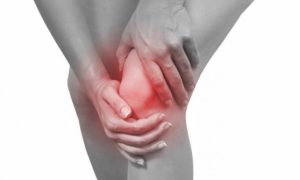Menopause is a significant life transition, and its impacts can vary widely from one woman to another. While it may bring challenges, it also offers an opportunity to focus on self-care and long-term health. With the right strategies and support, women can navigate menopause with confidence and vitality.
Menopause is a natural biological process that marks the end of a woman’s reproductive years. It typically occurs between the ages of 45 and 55, although the timing can vary. While menopause is a natural phase of life, it can bring significant changes to physical, emotional, and mental health. Understanding these impacts can help women navigate this transition more effectively.
Read More: Arthritis: Causes, Early Symptoms And Prevention
What is Menopause?
Menopause is defined as the cessation of menstrual periods for 12 consecutive months. It occurs due to the decline in the production of hormones like estrogen and progesterone by the ovaries. The phase leading up to menopause, known as perimenopause, can last several years and is characterized by fluctuating hormone levels.
Common Health Impacts of Menopause
Hot Flashes and Night Sweats
What Happens? Sudden feelings of heat, often accompanied by sweating and flushing, are common during menopause. Night sweats can disrupt sleep.
Why? Decreased estrogen levels affect the hypothalamus, which regulates body temperature.
Bone Health and Osteoporosis
What Happens? Reduced estrogen levels can lead to bone density loss, increasing the risk of osteoporosis and fractures.
Preventive Measures: Calcium and vitamin D intake, regular weight-bearing exercises, and bone density screenings can help.
Cardiovascular Health
What Happens? Estrogen helps maintain healthy cholesterol levels and blood vessels. Its decline can increase the risk of heart disease.
Lifestyle Tips: Maintain a heart-healthy diet, exercise regularly, and avoid smoking.
Read More: Preventing Fractures With Osteoporosis: 5 Steps You Can Take Today
Weight Gain and Metabolism Changes
What Happens? Slower metabolism and hormonal changes can lead to weight gain, particularly around the abdomen.
Management: Focus on a balanced diet, portion control, and regular physical activity.
Mood Swings and Emotional Health
What Happens? Hormonal fluctuations may cause irritability, anxiety, or depression in some women.
Self-Care Tips: Practice mindfulness, seek social support, and consider counseling if needed.
Sleep Disturbances
What Happens? Insomnia and disrupted sleep patterns are common due to hormonal shifts and night sweats.
Solutions: Maintain a consistent bedtime routine, reduce caffeine intake, and create a comfortable sleeping environment.
Skin and Hair Changes
What Happens? Reduced collagen production can lead to dry skin, thinning hair, and increased wrinkles.
Care Routine: Use moisturizing skincare products and consider supplements like omega-3 fatty acids for skin and hair health.
Read More: Say Goodbye To Lower Back Pain With This Simple Yoga Asana
Urogenital and Sexual Health
What Happens? Vaginal dryness, decreased libido, and urinary incontinence may occur due to reduced estrogen.
Treatments: Vaginal moisturizers, lubricants, or hormone therapy can alleviate discomfort.
Tips for Managing Menopause
- Healthy Diet: Focus on whole grains, lean proteins, fruits, and vegetables. Avoid excessive sugar and processed foods.
- Regular Exercise: Incorporate a mix of cardio, strength training, and flexibility exercises.
- Stress Management: Yoga, meditation, or other relaxation techniques can help reduce stress.
- Consult a Healthcare Professional: Discuss symptoms and explore options like hormone replacement therapy (HRT), if suitable.
- Stay Informed: Understanding menopause and its effects can empower you to make informed choices.
(This article is intended for your general information only. Zee News does not vouch for its accuracy or reliability.)





































